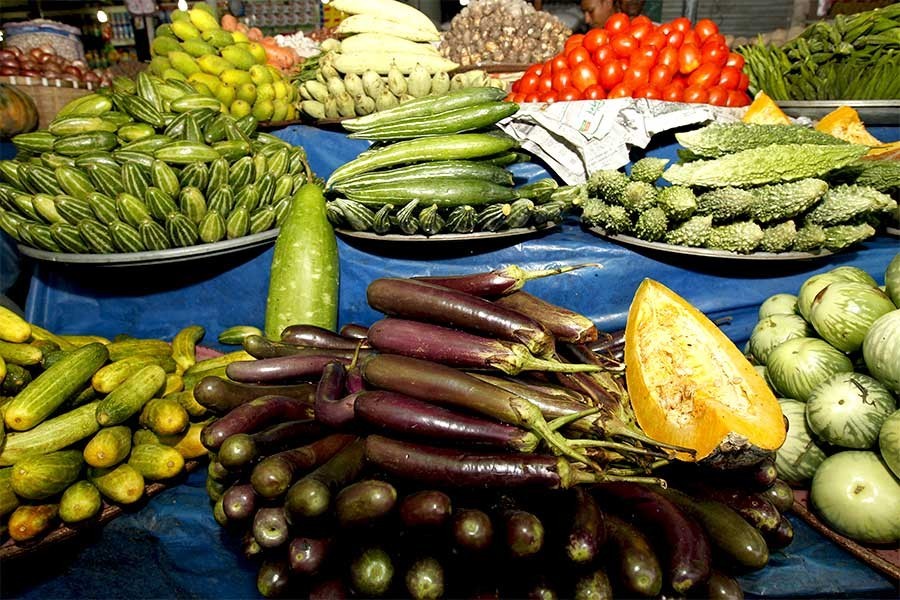In a bid to combat Covid-19 pandemic, the 'social distancing' or lockdown that is now in force across the country since the government announced 'general holidays' on March 26 has begun to take its toll. Vegetable farmers seem to be among the hardest hit; their produces are either being sold at throwaway prices or hardly being sold at all. In many cases they appear diffident in harvesting their crop because there is low demand and prices are far below the cost of production. The local markets where the growers usually sell their vegetables are mostly bereft of bulk buyers like wholesalers or even middlemen as they are unable to carry out their trading activities due to the supply chain disruptions caused by transport sh utdowns.
As the reports go, farmers in some major vegetable growing districts including Rajshahi, Rangpur, Dinajpur, Bogura, Manikganj, Cumilla, Narsingdi, Jashore, Khulna and Chattogram could not even get one fourth of their production costs by selling their crops in the market. It is to be noted that vegetables are grown commercially by farmers in some 26 districts of the country. Since all those growers are fearing similar prospects for their produces, a fear that is hardly unfounded, it is of utmost importance that such farmers get direct cash subsidy to continue with their role of feeding the nation with vitamin-enriched victuals.
This year's forecasts on vegetable production as made by the Department of Agriculture Extension (DAE), the government agency that educates farmers, hover around seven million tonnes. The figure provides us with an idea about the magnitude of the possible crop loss being feared. If adequate storage facilities could be arranged and if the government could buy even a portion of these vegetables from farmers and store those, it could serve both farmers and the nation in the long run. This year having brought unprecedented woes to the farmers, the situation underscores the need for comprehensive contingency planning with agriculture. The responsibility of the agriculture extension wing of the agriculture ministry has increased manifold. It has to devise a sustainable strategy drawn on the extraordinary experience of the current year to respond to a calamitous situation of all shapes and sizes.
Just to fathom the gravity of the situation that farmers are in one has to take into account the likely extension of the period of lockdowns further with stricter measures to ensure that the public are complying with the requirements of 'social distancing'. But vegetable farming admits of social distancing, a redeeming feature that can be bolstered through inter-district movement of farmers which has been given an impetus lately by the government.
Considering the experiences of the neighbouring countries under comparable circumstances, there is sufficient ground to draw on the best practice methods to come of the woods in terms of resuming the productivity in full-swing. The measures may include,besides cash transfers, input support that the government had been providing with success and additional fund as credit so they may use it as working capital.That would help them prepare for starting their farming activity with vigour once the time proves to be propitious. One could not agree more with agronomist Prof GolamHafeez Kennedy pointing out that import of food products might decline in the coming months as all countries are preserving food fearing crop loss due to the pandemic. Hence the necessity for raising reliance on local production to ensure better food security.


